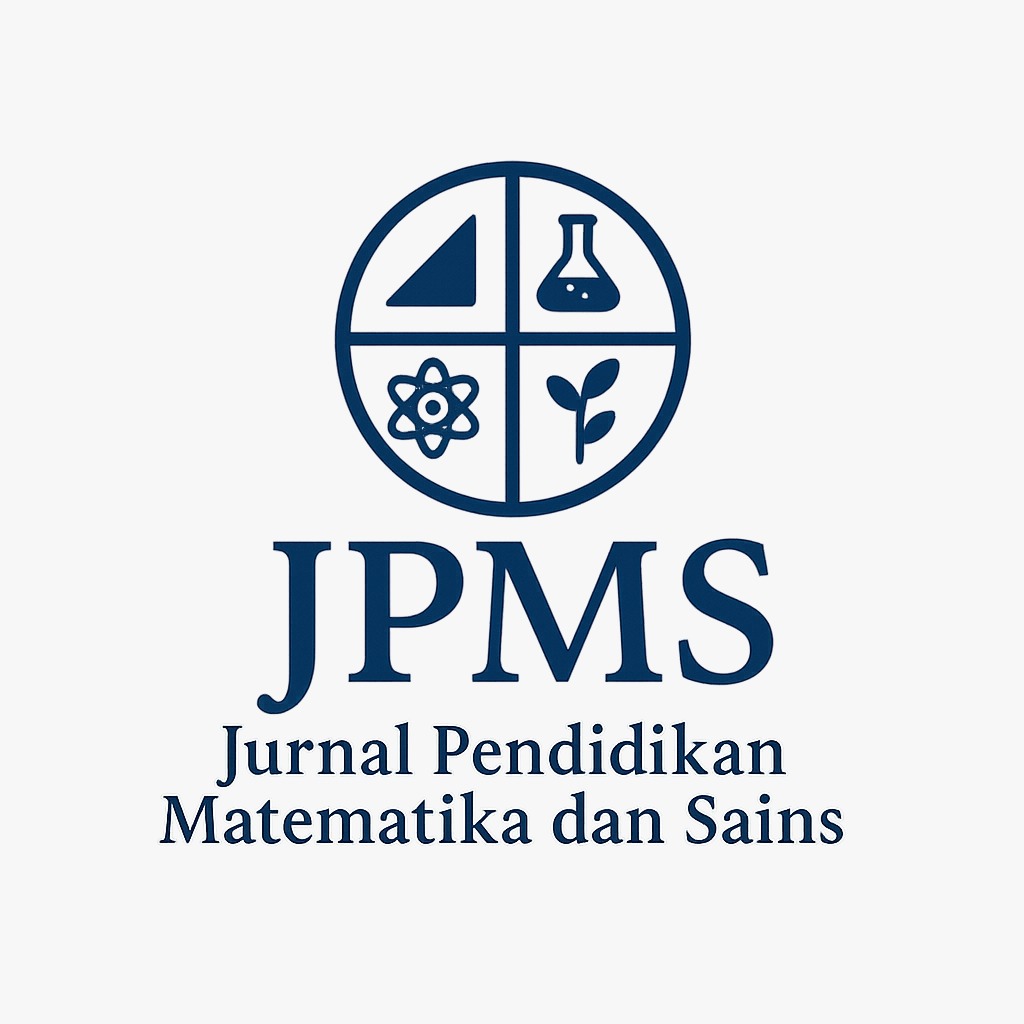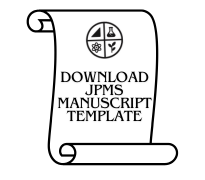Pengaruh STEM terhadap Hasil Belajar Siswa dan Perbedaan Gender di Sekolah Menengah Atas: Sebuah Meta-analisis
DOI:
https://doi.org/10.21831/jpms.v12i2.71840Keywords:
Gender, Hasil Belajar, Meta-analisis, Sekolah Menengah Atas, STEMAbstract
Studi ini menganalisis dampak pendekatan Sains, Teknologi, Teknik, dan Matematika (STEM) terhadap hasil belajar siswa dan perbedaan gender di Sekolah Menengah Atas (SMA). Dalam meta-analisis ini, periode pencarian artikel yang relevan ditetapkan antara tahun 2018 dan 2023. Pencarian literatur dilakukan melalui database Google Scholar dan dibantu oleh program perangkat lunak Publish or Perish (PoP). Sebanyak 827 makalah dievaluasi dalam pencarian literatur awal, dengan 14 artikel yang memenuhi kriteria untuk dimasukkan ke dalam meta-analisis dari 24 studi. Fokus analisis adalah dimensi hasil belajar, seperti pengetahuan, pemecahan masalah, kreativitas, prestasi, berpikir kritis, keterampilan berpikir tingkat tinggi (HOTS), literasi sains, keterampilan berpikir sistem, efikasi diri, dan kognitif. Hasil penelitian menunjukkan peningkatan yang signifikan dalam hasil belajar siswa melalui STEM, dengan efek positif pada kedua jenis kelamin, meskipun dengan perbedaan intensitas. Penelitian ini memberikan wawasan berharga untuk implementasi STEM di Sekolah Menengah Atas, serta menyoroti perlunya penelitian lanjutan untuk pemahaman holistik tentang dampak STEM untuk dimensi yang belum sepenuhnya terungkap, seperti HOTS, literasi sains, dan kognitif, sehingga memperdalam pemahaman tentang dampak STEM secara komprehensif.
References
Ab Kadir, W., Huda, W. N., Abdullah, N. S. Y., & Mustapha, I. R. (2021). The Effectiveness of Form Four STEM-Based Physics Interactive Laboratory (I-Lab) by Employing Isman Instructional Design Model. Turkish Online Journal of Educational Technology-TOJET, 20(2), 140–145.
Alatas, F., & Yakin, N. A. (2021). The Effect of Science, Technology, Engineering, and Mathematics (STEM) Learning on Students' Problem Solving Skill. JIPF (Jurnal Ilmu Pendidikan Fisika), 6(1), 1. https://doi.org/10.26737/jipf.v6i1.1829
Antonio, R. P., & Castro, R. R. (2023). Effectiveness of Virtual Simulations in Improving Secondary Students' Achievement in Physics: A Meta-Analysis. International Journal of Instruction, 16(2), 533–556. https://doi.org/10.29333/iji.2023.16229a
Ardianti, S., Sulisworo, D., Pramudya, Y., & Raharjo, W. (2020). The Impact of the Use of STEM Education Approach on the Blended Learning to Improve Student's Critical Thinking Skills. Universal Journal of Educational Research, 8(3B), 24–32. https://doi.org/10.13189/ujer.2020.081503
Bedar, R. W. A.-H., & Al-Shboul, M. A. (2020). The Effect of Using STEAM Approach on Motivation Towards Learning Among High School Students in Jordan. International Education Studies, 13(9), 48. https://doi.org/10.5539/ies.v13n9p48
í‡evik, M., & Azkın, Z. (2020). STEM Anlayışının ve Gí¶rselleÅŸtirilmesinin Zeka Alanlarıyla Ä°liÅŸkisinde Proje Tabanlı í–ÄŸretime Dayanan STEM Yaklaşımının (STEM PTí–) Rolí¼. Mediterranean Journal of Educational Research, 14(34), 1–44. https://doi.org/10.29329/mjer.2020.322.1
Chen, Y., & Chang, C.-C. (2018). The Impact of an Integrated Robotics STEM Course with a Sailboat Topic on High School Students' Perceptions of Integrative STEM, Interest, and Career Orientation. EURASIA Journal of Mathematics, Science and Technology Education, 14(12). https://doi.org/10.29333/ejmste/94314
Cohen, J. (2013). Statistical power analysis for the behavioral sciences. Academic press. https://doi.org/https://doi.org/10.4324/9780203771587
Dugger, W. E. (2010). Evolution of STEM in the United States. Knowledge in Technology Education: Proceedings of the 6th Biennial International Conference on Technology Education: Volume One (TERC 2010) Volume One (TERC 2010), 117–123.
Fadillah, M. A., & Sahyar, S. (2023). Development of Higher Order Thinking Skills (HOTS) Test Instruments on Parabolic and Circular Motion Materials in High Schools. Berkala Ilmiah Pendidikan Fisika, 11(3), 329–338.
https://doi.org/http://dx.doi.org/10.20527/bipf.v11i3.16697
Fadlina, F., & Ritonga, S. (2021). The Implementation of STEM-Based Discovery Learning Model in Motion Systems Concept to Improve Learning Outcomes. Asian Journal of Science Education, 3(2), 120–125. https://doi.org/10.24815/ajse.v3i2.19724
Firat, E. A. (2020). Science, Technology, Engineering, and Mathematics Integration: Science Teachers' Perceptions and Beliefs. Science Education International, 31(1), 104–116. https://doi.org/10.33828/sei.v31.i1.11
Fong, C. J., Kim, Y., Davis, C. W., Hoang, T., & Kim, Y. W. (2017). A meta-analysis on critical thinking and community college student achievement. Thinking Skills and Creativity, 26, 71–83. https://doi.org/10.1016/j.tsc.2017.06.002
Funa, A. A., & Prudente, M. S. (2021). Effectiveness of Problem-Based Learning on Secondary Students' Achievement in Science: A Meta-Analysis. International Journal of Instruction, 14(4), 69–84. https://doi.org/10.29333/iji.2021.1445a
Hakim, R. Y. N., Tamtomo, D., & Murti, B. (2023). Effect of Gluten Free Casein Free Diet on Maladaptive Behavior in Autistic Children: Meta-Analysis. Indonesian Journal of Medicine, 8(3), 286–294. https://doi.org/https://doi.org/10.26911/theijmed.2023.08.03.06
Hansen, M. (2014). Characteristics of Schools Successful in STEM: Evidence from Two States' Longitudinal Data. The Journal of Educational Research, 107(5), 374–391. https://doi.org/10.1080/00220671.2013.823364
Haryadi, R., Situmorang, R., & Khaerudin, K. (2021). Enhancing Students' High-Order Thinking Skills through STEM-Blended Learning on Kepler's Law During Covid-19 Outbreak. Jurnal Penelitian Dan Pembelajaran IPA, 7(2), 168. https://doi.org/10.30870/jppi.v7i2.12029
Hinojo-Lucena, F.-J., Dúo-Terrón, P., Ramos Navas-Parejo, M., Rodríguez-Jiménez, C., & Moreno-Guerrero, A.-J. (2020). Scientific Performance and Mapping of the Term STEM in Education on the Web of Science. Sustainability, 12(6), 2279. https://doi.org/10.3390/su12062279
Judson, E. (2014). Effects of Transferring to STEM-Focused Charter and Magnet Schools on Student Achievement. The Journal of Educational Research, 107(4), 255–266. https://doi.org/10.1080/00220671.2013.823367
Lara-Alvarez, C. A., Parra-González, E. F., Ortiz-Esparza, M. A., & Cardona-Reyes, H. (2023). Effectiveness of virtual reality in elementary school: A meta-analysis of controlled studies. Contemporary Educational Technology, 15(4), ep459. https://doi.org/10.30935/cedtech/13569
Lin, Y.-T., Wang, M.-T., & Wu, C.-C. (2019). Design and Implementation of Interdisciplinary STEM Instruction: Teaching Programming by Computational Physics. The Asia-Pacific Education Researcher, 28(1), 77–91. https://doi.org/10.1007/s40299-018-0415-0
Listiana, L., Abdurrahman, A., Suyatna, A., & Nuangchalerm, P. (2019). The Effect of Newtonian Dynamics STEM-Integrated Learning Strategy to Increase Scientific Literacy of Senior High School Students. Jurnal Ilmiah Pendidikan Fisika Al-Biruni, 8(1), 43–52. https://doi.org/10.24042/jipfalbiruni.v8i1.2536
Moher, D., Liberati, A., Tetzlaff, J., & Altman, D. G. (2009). Preferred Reporting Items for Systematic Reviews and Meta-Analyses: The PRISMA Statement. Journal of Clinical Epidemiology, 62(10), 1006–1012. https://doi.org/10.1016/j.jclinepi.2009.06.005
Narulita, D., & Aprilianto, D. (2022). Meta-Analysis Study: Is Dental Health Education Effective to Improve Knowledge, Attitude, and Behavior in Adolescents? Journal of Health Promotion and Behavior, 7(3), 197–207. https://doi.org/10.26911/thejhpb.2022.07.03.03
Pratiwi, A. N., Aisyah, N., Somakim, S., & Kamran, M. (2023). STEM-based approach: A learning design to improve critical thinking skills. Al-Jabar : Jurnal Pendidikan Matematika, 14(1), 225–237. https://doi.org/10.24042/ajpm.v14i1.18054
Samsudin, M. A., Zain, A. N. M., Jamali, S. M., & Ebrahim, N. A. (2018). Physics Achievement in STEM PjBL: A Gender Study. The Asia Pacific Journal of Educators and Education, 32, 21–28.
Saraí§, H. (2018). The Effect of Science, Technology, Engineering and Mathematics-STEM Educational Practices on Students' Learning Outcomes: A Meta-Analysis Study. Turkish Online Journal of Educational Technology-TOJET, 17(2), 125–142.
Sari, S. Y., Hirahmah, A., Hidayati, H., & Rahim, F. R. (2023). Validity of Interactive Learning Media Integrated Critical and Creative Thinking Skills Aided by the Lectora Inspire Application. Jurnal Ilmiah Pendidikan Fisika, 7(2), 204. https://doi.org/10.20527/jipf.v7i2.7404
Shahbazloo, F., & Abdullah Mirzaie, R. (2023). Investigating the effect of 5E-based STEM education in solar energy context on creativity and academic achievement of female junior high school students. Thinking Skills and Creativity, 49, 101336. https://doi.org/10.1016/j.tsc.2023.101336
Simeon, M. I., Samsudin, M. A., & Yakob, N. (2022). Effect of design thinking approach on students' achievement in some selected physics concepts in the context of STEM learning. International Journal of Technology and Design Education, 32(1), 185–212. https://doi.org/10.1007/s10798-020-09601-1
Sinurat, H. A. Y., Syaiful, S., & Muhammad, D. (2022). The Implementation of Integrated Project-Based Learning Science Technology Engineering Mathematics on Creative Thinking Skills and Student Cognitive Learning Outcomes in Dynamic Fluid. Jurnal Penelitian & Pengembangan Pendidikan Fisika, 8(1), 83–94. https://doi.org/10.21009/1.08108
Supena, I., Darmuki, A., & Hariyadi, A. (2021). The Influence of 4C (Constructive, Critical, Creativity, Collaborative) Learning Model on Students' Learning Outcomes. International Journal of Instruction, 14(3), 873–892. https://doi.org/10.29333/iji.2021.14351a
Usmeldi, U., Amini, R., & Trisna, S. (2017). The Development of Research-Based Learning Model with Science, Environment, Technology, and Society Approaches to Improve Critical Thinking of Students. Jurnal Pendidikan IPA Indonesia, 6(2), 318. https://doi.org/10.15294/jpii.v6i2.10680
Utari, N., Ambiyar, A., Usmeldi, U., Syah, N., Arwizet, A., & Anwar, M. (2021). Meta-analysis: effectiveness of e-learning-based learning media in vocational education. EDUTEC: Journal of Education And Technology, 5(2), 306–315. https://www.ejournal.ijshs.org/index.php/edu/article/view/319
Wahono, B., Lin, P.-L., & Chang, C.-Y. (2020). Evidence of STEM enactment effectiveness in Asian student learning outcomes. International Journal of STEM Education, 7(1), 36. https://doi.org/10.1186/s40594-020-00236-1
Wang, L.-H., Chen, B., Hwang, G.-J., Guan, J.-Q., & Wang, Y.-Q. (2022). Effects of digital game-based STEM education on students' learning achievement: a meta-analysis. International Journal of STEM Education, 9(1), 26. https://doi.org/10.1186/s40594-022-00344-0
Widya, Rifandi, R., & Laila Rahmi, Y. (2019). STEM education to fulfil the 21st century demand: a literature review. Journal of Physics: Conference Series, 1317(1), 012208. https://doi.org/10.1088/1742-6596/1317/1/012208
Wong, B., Chiu, Y.-L. T., Murray, í“. M., Horsburgh, J., & Copsey-Blake, M. (2023). "˜Biology is easy, physics is hard': Student perceptions of the ideal and the typical student across STEM higher education. International Studies in Sociology of Education, 32(1), 118–139. https://doi.org/10.1080/09620214.2022.2122532
Zuo, M., Kong, S., Ma, Y., Hu, Y., & Xiao, M. (2023). The Effects of Using Scaffolding in Online Learning: A Meta-Analysis. Education Sciences, 13(7), 705. https://doi.org/10.3390/educsci13070705
Županec, V., Radulović, B., & Lazarević, T. (2022). Instructional Efficiency of STEM Approach in Biology Teaching in Primary School in Serbia. Sustainability, 14(24), 16416. https://doi.org/10.3390/su142416416
Downloads
Published
How to Cite
Issue
Section
Citation Check
License
Jurnal Pendidikan Matematika dan Sains allows readers to read, download, copy, distribute, print, search, or link to its articles' full texts and allows readers to use them for any other lawful purpose. The journal allows the author(s) to hold the copyright without restrictions. Finally, the journal allows the author(s) to retain publishing rights without restrictions
- Authors are allowed to archive their submitted article in an open access repository
- Authors are allowed to archive the final published article in an open access repository with an acknowledgment of its initial publication in this journal

This work is licensed under a Creative Commons Attribution-ShareAlike 4.0 Generic License.





